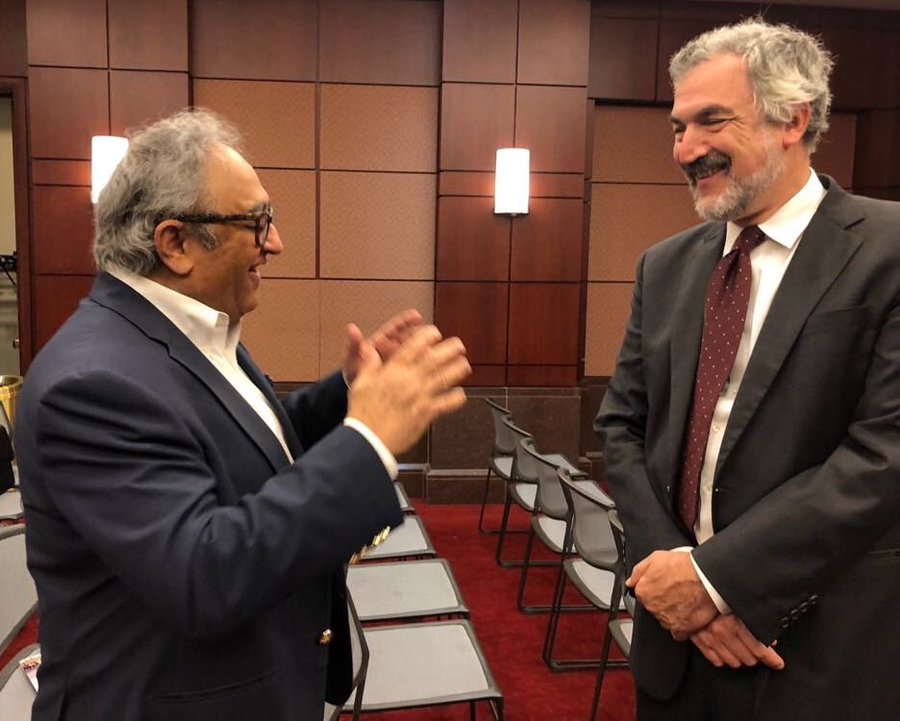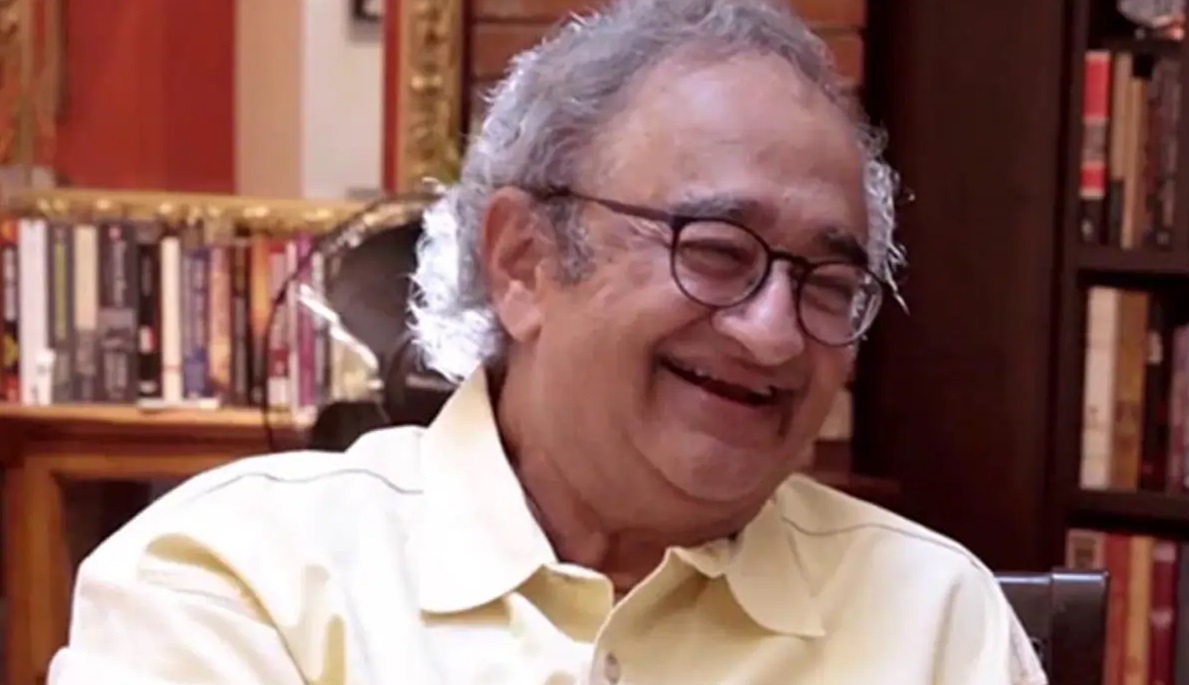Tarek Fatah, a founding giant of the global counter-Islamist movement and a leading figure in the effort to update the practice of Islam in the modern world, died this past weekend after a long illness. Fatah, who had served as a Middle East Forum Fellow since 2014, was a courageous defender of democracy, freedom, and pluralism against jihadism and Islamism.

“He was not just smart and brave, but also about the most eloquent and joyful speaker whom I have ever had the pleasure of listening to—and being inspired by,” said Middle East Forum President Daniel Pipes.
A longtime contributor to the Toronto Sun and a popular radio talk show host on CFRB 1010, Fatah promoted the cause of moderate Islam by fighting Islamism and encouraging other moderates to speak out against Islamists’ abuses. In addition to calling on moderate Muslims to save Islam from Islamists, he regularly shamed his fellow leftists over their failure to confront Islamism. Fatah offered these messages in two award-winning books, Chasing a Mirage: The Tragic Illusion of an Islamic State (John Wiley & Sons, 2008) and The Jew is Not My Enemy: Unveiling the Myths that Fuel Muslim Anti-Semitism (McClelland & Stewart, 2010).
In Chasing a Mirage, Fatah encouraged his fellow Muslims to return to the universal principles that he argued had been abandoned by Muslim elites in the centuries after Muhammad’s death, declaring that “the message of the Quran is strong enough to withstand the facts of history. It is my conviction that Muslims are mature and secure in their identities to face the truth.”
Nothing scared Tarek Fatah.
Lorrie Goldstein
In The Jew is Not My Enemy, Fatah told his fellow Muslims, “We have a choice. Either we allow ourselves to be consumed by hatred, or we approach Jews as fellow human beings, at worst as adversaries in a political dispute, not as monsters destined to be our enemy for all time.”
Fatah, who emigrated to Canada from Pakistan in the early 1980s, founded the Muslim Canadian Congress, a group committed to fighting Islamism and promoting the separation between religion and state. In 2012, he launched an online campaign that had a major role in Malala Yousafzai winning the 2014 Nobel Peace Prize for her efforts to educate girls in Pakistan.
Fatah regularly assailed Islamist organizations in the West. In a piece published in the Toronto Sun in 2015, Fatah condemned North American Muslim advocacy groups for their refusal to condemn jihadism in the wake of an attack in San Bernadino, California, that resulted in the deaths of fourteen people, lamenting that it was too much to ask Islamic organizations to “recognize it was time to condemn ‘jihad’ itself and to stop playing the victim card.”
He also highlighted the connections between President Barack Obama and the Muslim Brotherhood, declaring the president was infatuated with orthodox ultra-conservative Islam, a movement that hid behind the label of “moderate Muslims” and leftist terminology. He warned of Muslim Brotherhood activists using their clout with the White House to establish Islamist mosques in the U.S., furthering anti-American radical Islam. Fatah gave voice to moderate Muslims condemning Obama’s friendliness with American Islamism. “We are in a crisis because of the unchecked intrusions of extremist doctrine into the West,” Asra Nomani told Fatah. “We need to respond with Muslim reform that advocates peace, human rights, and secular governance.”
Fatah was a fearless opponent of political correctness, arguing in 2015 that government officials should interview and debrief every adult male arriving alone from Arab countries, Pakistan, Iran, Afghanistan, Nigeria, and Somalia – irrespective of religion, color, or nationality. He called on officials to tell every mosque in North America to end all derogatory references to “kufr” (Christians, Jews, Hindus, and atheists) in ritual prayers, or lose their charitable status. He also called on governments to ban overseas donations from Saudi Arabia and other Gulf Arab sources to mosques in North America.
Fatah, who described the niqab as “the flag of Islamism,” promoted the status of women living in Muslim-majority environments. He praised women’s rights activist Ayaan Hirsi Ali for her performance in a 2016 debate about the status of women in Islam. Fatah noted that things got particularly heated when Ali raised the issue of child marriage in Islam.
“It seems conflicts within Islam that began 1,400 years ago on the deathbed of Prophet Muhammad are going to be with us for as long as we Muslims remain oblivious to our surroundings,” he wrote. “Apologies to the rest of you.”
News of Fatah’s death elicited praise from his supporters in North America and Pakistan. “Fearless. That’s the one word that, for me, best described Tarek Fatah,” wrote Lorrie Goldstein in the Toronto Sun. “[N]othing scared Tarek Fatah. Not death threats by fanatics. Not arrests. Not imprisonment by dictatorial regimes abroad, all of which he endured with remarkable stoicism, courage, and even humour.”
Zhudi Jasser, president of the American Islamic Forum for Democracy , wrote on Twitter that “courage coursed through [Fatah’s] veins to a level of no one else I knew. His impact on our work to defeat Islamism and protect Western civilization will be felt forever and has yet to be fully realized. God blessed us to know him.”
Phyllis Chesler, a prominent women’s rights activist and author of American Bride in Kabul: A Memoir, told FWI that Fatah was a powerful voice of support for her activism and showed great kindness to her when she lectured in Toronto. “May he rest in peace and may his family be consoled,” she said.
Dalia al-Aqidi, a founding member of the Clarity Coalition and a regular contributor to Arab News, lamented Fatah’s death, declaring on Twitter that “He was a brilliant and brave man who was an inspiration for many.”
Fatah’s daughter, Natasha, offered a moving tribute on Twitter after his death, proclaiming him a “voice of the down-trodden, underdogs, and the oppressed.”
Dexter Van Zile is managing editor of Focus on Western Islamism.
